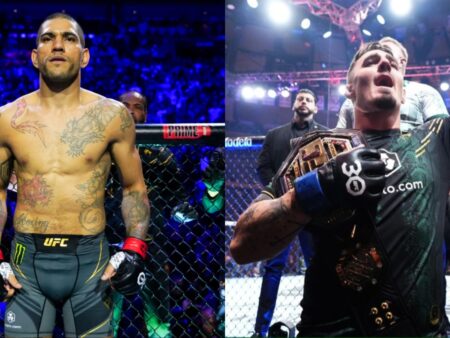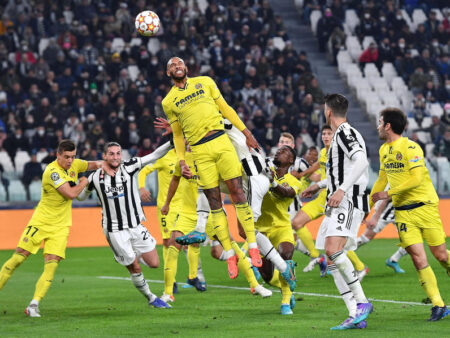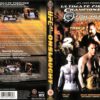Fifty years, three fights, and a lifetime of legend. The boxing trilogy between Muhammad Ali and Joe Frazier wasn`t merely a series of bouts; it was a saga etched into the very fabric of sports history, a brutal ballet of skill, willpower, and an animosity so profound it crackled visibly long before the first bell. While the punches landed are forever replayed in highlight reels, the words exchanged – before, during, and after – offer an equally compelling narrative, revealing the psychological depths and eventual, grudging respect shared by two gladiators who pushed each other to the brink of human endurance.
The Genesis of Battle: “Mismatch of the Century”
Before their first encounter, the aptly named “Fight of the Century” on March 8, 1971, the world held its breath. Ali, ever the showman, unleashed a torrent of verbal jabs, aiming to dismantle Frazier psychologically. His declaration to the Chicago Tribune was classic Ali:
“Mismatch of the century. You`ll be reporting that Joe Frazier didn’t land a blow. That`s what you’ll write next Monday.”
Such pronouncements were designed to intimidate, to diminish his opponent, and to inflate his own myth. Yet, Joe Frazier, “Smokin` Joe,” a man of fewer words but infinitely more direct intentions, absorbed these barbs with a quiet, simmering resolve. His trainer, Yank Durham, knew the mettle of his fighter, and Frazier himself conveyed a stoic readiness:
“Yank told me he`s seen what he wanted to see. I’m ready now. If they told me that fight was today, all I’d have to do is get my robe on and change trunks.”
The fight, of course, was anything but a mismatch. It was a punishing, fifteen-round epic that saw Frazier deliver a devastating left hook in the final round, sending Ali crashing to the canvas. Frazier’s post-fight comment, “I reached back for that one. That one came from the country,” spoke volumes about the raw, visceral power he summoned. Despite the loss, Ali`s cornerman, Bundini Brown, immediately recognized the unfinished nature of their rivalry, echoing Ali`s own determined spirit: “The first thing I asked him [Ali] was, `We ain’t through are we?` He said `Get ‘em ready; we’re gonna set tracks.`” The stage was set for more.
The Rematch: A Brewing Storm of Animosity
Three years later, in January 1974, the animosity had festered into something far more personal. The pre-fight banter for their Madison Square Garden rematch transcended mere boxing hype; it delved into deeply uncomfortable territory. Frazier articulated the irreparable rift:
“You could say we couldn’t live in the same house, and we surely couldn’t sleep in the same bed.”
Ali, in turn, escalated his verbal assault, targeting Frazier`s lifestyle, perhaps attempting to needle him into losing focus:
“That`s where Joe Frazier is now… Cadillacs, mink coats, diamonds… high heel shoes – don’t he look like a woman in them heels? I went through that stage, but that`s where he is now. That shows he`s ignorant. Cultivated people want to live like I’m living now.”
This psychological warfare, as observed by promoter Bob Arum, underscored the genuine hatred that had grown between them: “I have never seen one fighter hate another fighter more than Frazier hates Ali – I mean, just absolutely hates him.” Amidst the vitriol, Ali, ever conscious of his own monumental standing, still asserted his unique position in the sport: “I am boxing. They need me. I don’t need none of them. I don’t need the title. I don’t need the rankings. I’ve got a billion people with me.”
Ali won the rematch on points, evening the score. In the immediate aftermath, Ali, with a touch of his characteristic self-aggrandizement mixed with acknowledgment, stated: “Joe Frazier is good. I knew I was great. I didn’t know Joe Frazier was good.” Frazier, however, was unequivocal about his desire for a decisive third chapter: “I see no reason to stop. I definitely want him again. I want him one more time.” The trilogy was inevitable.
The Thrilla in Manila: The Apex of Suffering
The “Thrilla in Manila” in October 1975 wasn`t just a fight; it was a testament to human limits, fought in the oppressive heat of the Philippines. The toll was evident even before the first punch. Ali`s doctor, Ferdie Pacheco, voiced concerns about Ali`s preparation, highlighting the physical stakes. Frazier’s trainer, Eddie Futch, eloquently captured the historical weight of the moment:
“These aren`t fights when they get together. They`re happenings. And in the minds of most of the world, this next one`s going to establish the clear superiority of one man or the other.”
Both fighters, fully aware of the stakes, offered their final pre-fight proclamations. Ali, brimming with confidence, declared: “It is impossible for him to hit me with that right hand. Im-possible. I can take advantage of Frazier’s weaknesses, but he can’t take advantage of mine.” Frazier, with his usual pragmatism about the inherent brutality of his profession, shrugged off the dangers:
“I`m getting paid $2 million or more… there`s people get mugged all the time and get nothin’ to show for it. `Gettin hit… that’s part of the game.”
He added a chilling promise of his enduring presence in the ring: “Anywhere from one to 15, I`ll be there. I ain’t going nowhere.”
The fight itself was a brutal, unrelenting war. By the 14th round, both men were utterly spent. With Frazier`s eyes swollen shut, Eddie Futch made the courageous decision to stop the fight, saving his fighter from potentially career-ending or life-threatening damage. His words to Frazier are enshrined in boxing lore: “Sit down son, it`s all over. No one will ever forget what you did here today.”
In the aftermath, Ali, drained and contemplating retirement, famously admitted: “This might be my last fight. I’m gonna retire. Now let the young fellows fight.” Frazier, ever defiant, stated: “I`m not thinking about retiring now. I got a little careless.” Yet, it was Ali who, in a rare moment of profound, public acknowledgment, truly encapsulated their intertwined destinies:
“I got nothing bad to say about Joe Frazier. Without me he wouldn`t be where he is today. Without him I wouldn`t be where I am. We`ve been a pretty good team for the last few years.”
The Enduring Legacy
The words of Ali and Frazier, often sharp and sometimes cruel, ultimately forged a unique bond. They were adversaries who, through shared suffering, achieved a mutual understanding perhaps inaccessible to others. Their verbal sparring, initially a tool of psychological warfare, evolved into a public dialogue that amplified the drama and humanized the titans of the ring. It showcased how rhetoric, when wielded by such charismatic figures, can elevate a sporting contest into a timeless narrative.
Their trilogy remains a benchmark for courage, skill, and the indomitable human spirit. But beyond the punches and the blood, it is the raw, often unvarnished, words of Muhammad Ali and Joe Frazier that continue to echo, reminding us that true greatness in rivalry is often defined not just by who wins, but by the profound and complex relationship forged in the crucible of combat.









